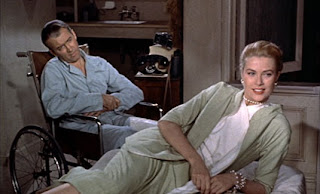
One of Billy Wilder's greatest movies -- and one of his rare flops -- is on home video at last. "Ace in the Hole" is a tough, cynical noir tale about the news business. It stars Kirk Douglas as a success-at-any-price newspaperman.
The film was a box-office failure when first released in 1951 and has never been available on home video. A Criterion two-disk set in a beautiful DVD transfer was issued earlier this month.
Go buy or rent this and watch it. Yes, it's good. Yes, you'll love it.
We'll gather back here in a couple of days to discuss.




